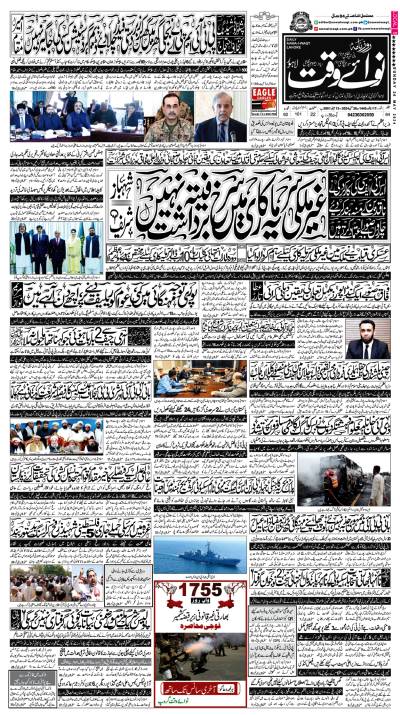THE American armed incursion of September 3 into the tribal area and the outrage it evoked from Pakistan was but the latest sign of trust deficit that had evidently been there for quite some time between the two key allies in the US-led War On Terror. Strangely enough, the US raid that killed 15 innocent civilians came at a time when Pakistan's six-week long military operation in Bajaur had elicited praise from Washington. As the climate of tension could neither be helpful to Pakistan nor the US and only benefit the militants, the unannounced visit of Admiral Mike Mullen, Chairman of the Joint Chiefs of Staff, to Islamabad could be viewed as an attempt to bridge the trust deficit. He met on Wednesday morning COAS General Ashfaq Kayani and Prime Minister Yousuf Raza Gilani where National Security Adviser Mahmood Ali Durrani and Defence Minister Mukhtar Ahmad were also present. It is not clear whether there is any truth in the unconfirmed reports that the Admiral gave the Pakistani authorities the assurance that no further ground attacks would take place in future. Nevertheless, the order of the army, revealed on Tuesday, to the forces on the ground to "open fire" in case another such incursion takes place conveys a message about Islamabad's attitude towards safeguarding the country's territorial integrity. Army spokesman Maj-General Athar Abbas was right in saying that the army had to take into account local sensitivities in tackling militancy. The US would do well to recognise that position rather than show desperation and mess up relations with an ally whose cooperation is vital to realising its goals. It also does not serve the purpose of fighting terrorism if the Bush administration officials were to keep picking holes in ISI's trustworthiness, as Assistant Secretary of State Boucher has again done, despite Pakistan's stand. As part of Islamabad's diplomatic efforts to remove US-Pak misunderstanding, President Asif Ali Zardari met British Prime Minister Gordon Brown in London on Tuesday to stress that incursion into Pakistan's territory did not help democracy in the country. He told the media that there was understanding among British leadership that Pakistan be helped in this regard. Armed incursions into another country's territory being a serious matter about which close friends must be consulted, General Kayani's proposed visit to Beijing seems to be well timed. While Islamabad and Washington ought to iron out their differences since clear understanding between them is the demand of the situation, the exchange of views on the matter with other friendly countries always proves useful. China, one of the closest friends of Pakistan, must invariably be kept in the picture on matters of crucial importance to us.
Sunday, May 26, 2024
Trust deficit
5 SHOs of capital police transferred
May 26, 2024
Trials for U-23 KP Games end in Malakand
May 26, 2024
Princess Zahra arrives in Chitral
May 26, 2024
Taiwan Escalation
May 26, 2024
Salaries & Pensions
May 26, 2024
Controlling Mobs
May 26, 2024
An Effective Registry
May 25, 2024
Economic Respite
May 25, 2024
History’s Biggest Fraud
May 26, 2024
Self-Medication
May 26, 2024
A Call for Reform
May 26, 2024
Natural Resources in Balochistan
May 25, 2024
Tribal Disputes
May 25, 2024
ePaper - Nawaiwaqt
Advertisement
Nawaiwaqt Group | Copyright © 2024





